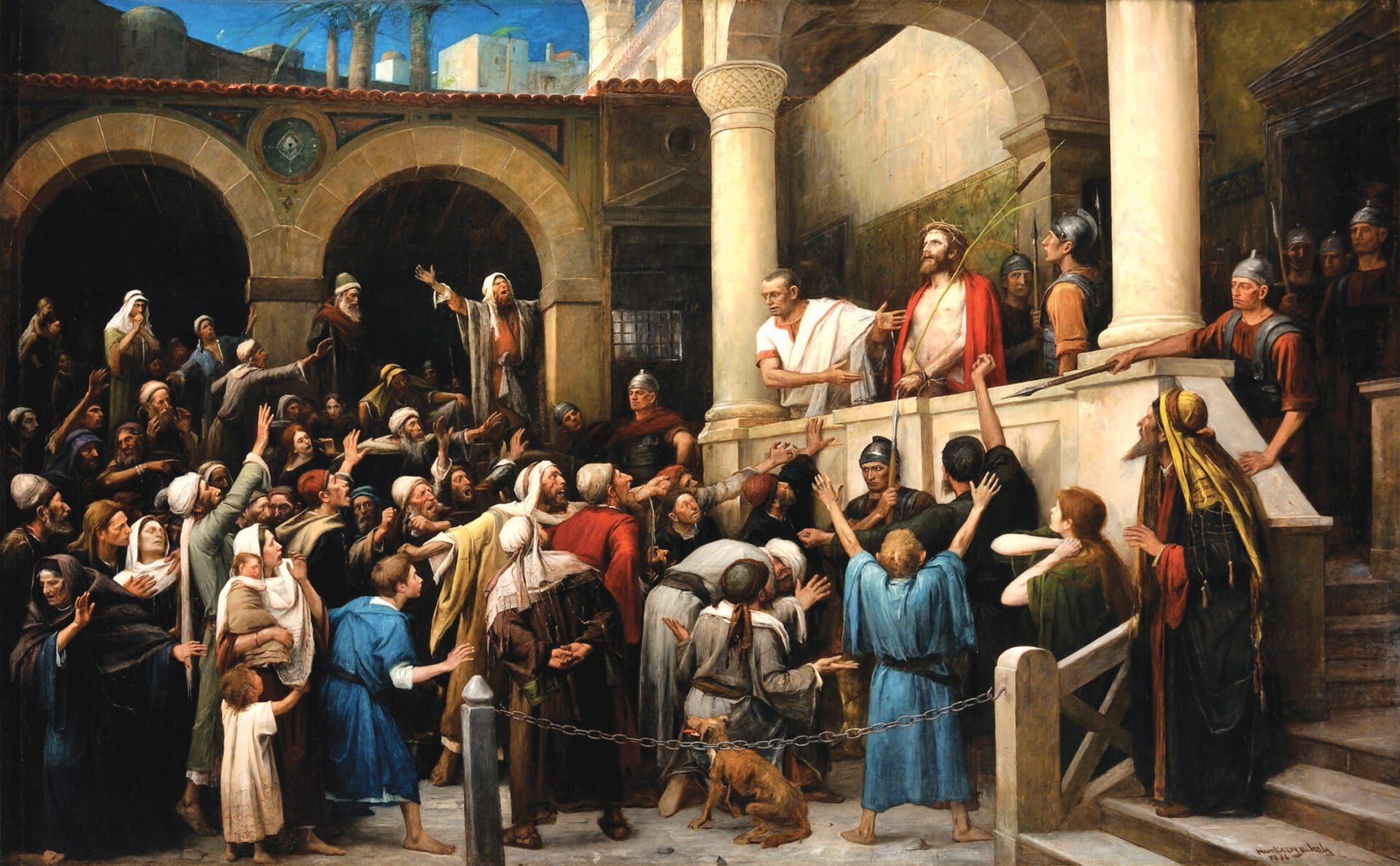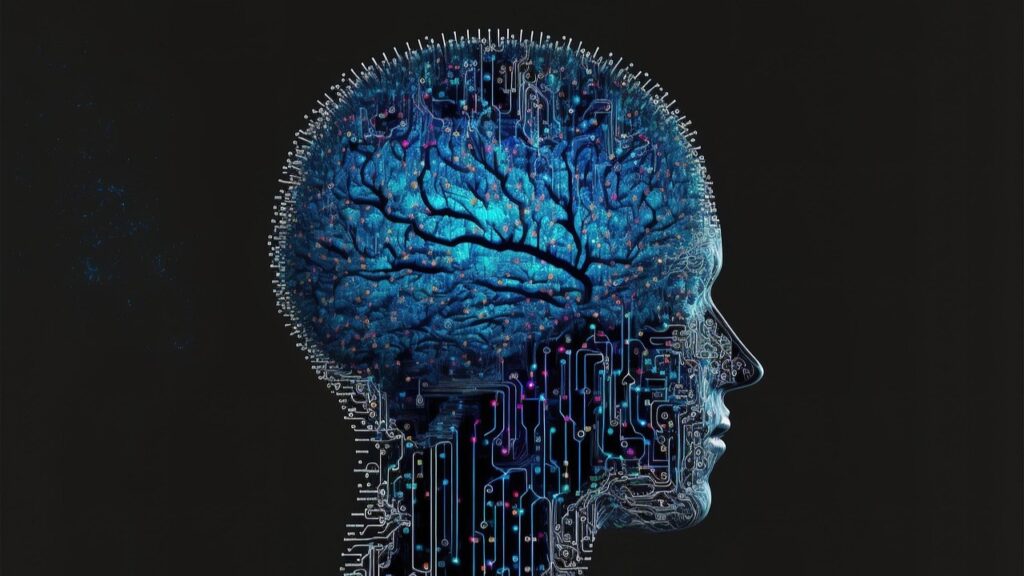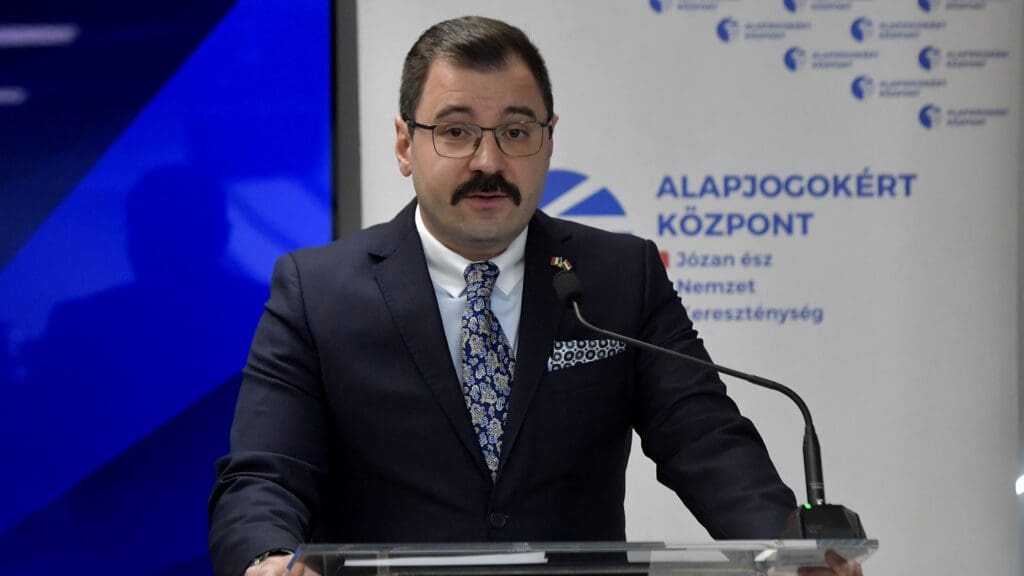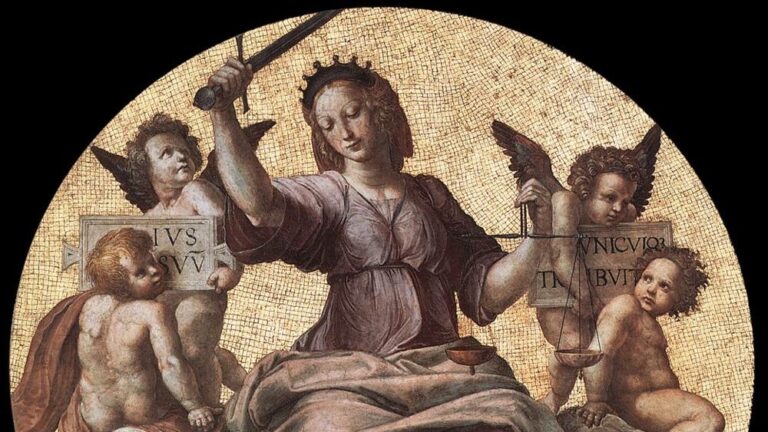This article was published in Vol. 2 No. 4 of the print edition
‘Creativity’ as the word is used in today’s vernacular is considered a modern term and a contemporary value. ‘It both grows out of and reinforces our general belief in things such as the power of individuality and the capacity to bring about novelty.’1 In addition to novelty, it is usually and generally associated with people who are capable of coming up with valuable or useful ideas. The creative ability of such persons was considered mysterious for a very long time, and its irrational side used to be emphasized. These days, however, the meaning of the term has been demystified, the creative process has been rationalized, and since it is presented as an everyday phenomenon, it is now treated as a permanent ability that can potentially be developed, and the ‘technique’ of which can be explored. First, this ability to solve problems in a new way was made measurable, and when it became possible to grasp it in numbers, people started to conceptualize it as something that can be shaped, enhanced, or even improved exponentially.
The meaning of creativity in the sense of an ability to create in the political domain has also changed through the centuries. This change is evident, primarily, in the relationship between the past and tradition, and in decoupling practice and (theoretical) knowledge. Creativity continues to be a central component of politics, but it is less frequently manifested in the novel application of experience than in the methodical implementation of a procedural rule in practice. The unique and personal employment of traditions has been replaced by impersonal technical expertise. As there are, naturally, various modes of creativity, including political creativity, thinking about it is necessarily multidirectional. But there are also some topoi by which the characteristics of thinking about creative politics can be identified.
Topoi of Personal Political Creativity
1. The Prince ‘Creating from Scratch’
The first topos of the creative prince focuses on the leader who creates political order. His relationship with the past is characterized by the lack of a past; his starting point is chaos in which a permanent cosmos needs to be created. His task is to establish the source of order which can be maintained, and the establishment of traditions. He may know other examples of ‘creation from scratch’, but he is the first to formulate goals, values, and the practices related to them, and he is distinguished by the originality of his work. The tradition of the ‘lawgiver’ has strong links with the contemporary notion of the ‘uniquely creative individual’2 who can create a political community from scratch, out of nothing. His role is even more preeminent than that of the maker of a constitution or a lawmaker. The role of Lycurgus as ‘Lawgiver’3 is different from what Aristotle identified as the lawmaker’s wisdom.4 The person of the ‘Lawgiver’ is not the same as the person who creates laws for specific cases, and his role is crucial in the history of humankind’s political existence. The polis in which human nature can find its own fulfilment does not come into existence by itself. According to Aristotle, ‘We seek such community by our very nature; the one who first created it is the source of the greatest blessing’.5 The topos of the creator prince is usually associated with cities which received laws at the time of their foundation that ensured their survival for centuries; the laws Sparta received from Lycurgus, for example, remained unchanged for eight hundred years.6 In order to create a political system, extraordinary people are required,7 whose highest degree of creativity is manifested in creating a new community.
The challenge […] is to be able to convince common people of the righteousness of the laws
In The Social Contract, Rousseau pointed out the challenges that the lawgiver has to face. Apropos of the fictitious social contract, he said that ‘What would be needed to discover the best rules of society […] is a superior intelligence’.8 The lawgiver is not only a great prince, but ‘also the engineer who invents the machine’; he is different from the worker who assembles it. He has to raise the individual from his natural condition to a political condition, and make him part of a greater whole. In this art of lawgiving, however, there is a major difficulty: the lack of power required for completing the endeavour beyond the strength of man.9 The challenge faced by the creative lawgiver is to be able to convince common people of the righteousness of the laws by speaking the language of the common folk, since they mostly follow their private interests, and this would require that ‘men would have to be, in advance of the laws, what they should become by means of the laws’.10 The solution is to transform human nature with courage and sufficient talent. The lawmaker ‘creates new people’—not rationally, but religiously.11 The lawgiver’s creativity in this sense is creatio ex nihilo, since he creates a community from nothing; the prince ‘has to be God who gives laws to the people’.12
2. The Creative Prince Overwriting the Old Laws
In reality, the prince finds himself faced with groups of people already living in a political community, not just living ‘in the wilderness’. According to Machiavelli, in order to create a new form of community the lawgiver must be familiar with the old, tried-and-tested laws which he is going to replace; with the community to which he is going to give laws; and with the means of defending the new order from sceptics and devotees of the old order. The perennially valid answers to these questions form the political tradition created by the creative prince. Thus the law universally considered ideal is not a tool appropriate in itself for establishing the order of a community; instead, a unique and personal solution is necessary and must always be provided. In his discussions of the new autocracies, Machiavelli gives the example of Moses, Cyrus the Great who founded the Persian Empire, Romulus, founder of Rome, and Theseus, the hero of Athens. All became princes due to their own individual talents. Each recognized the moment when they had found the ‘raw material’ they could then ‘mould […] into whatever shape they wanted’.13 In the course of organizing the empire, however, they faced ‘all kinds of difficulties when setting up their states’.14 According to Machiavelli, creating a new way of governing always entails conflict, since the new empire means new laws, and new enemies—the beneficiaries of the old laws. The political creator has to possess the power of persuasion, as the supporters of the new order are not as determined as the defenders of the old one. One major difficulty is that the resistance of the old order is supported by valid laws, while the new order still lacks experience. Thus, the founders of new empires must always take into account the lack of belief among their own supporters. What is more, convincing people only once is not sufficient, as it is typical of human nature that ‘it is easy to convince people of something, but hard to keep them convinced’.15 Thus the choice of the means depends on the community, and on the possibilities of persuading people over the long term.
The creator-prince overwriting what is old rejects the past. Moses stands out among the creative leaders mentioned by Machiavelli as examples, although in The Prince his deeds are not discussed in detail, since ‘he merely carried out God’s orders’.16 Tacitus, however, underlines Moses’s political accomplishment by which he also managed to meet the challenges described by Machiavelli many centuries later. For Tacitus, Moses is primarily a political leader and community builder, and only secondarily the founder of a religion. He relates that the Jews fled from Egypt to the wilderness as a consequence of an epidemic, and that was when the right ‘opportunity’ arose for Moses. He used religion as a political tool to create new laws against the old ones: ‘Moses, in order to chain his people to himself for the future, introduced new customs which contrasted with those of other mortals. Whatever is sacred for us is ordinary there, and what is unchaste for us is allowed for them.’17
This dual political and religious memory was highlighted by Jan Assmann in his review of Moses’s interpretations,18 from which it turns out that religion legitimized his role as founder of a nation also in the eyes of other historians.19 Overwriting the old order with new laws as ‘creative destruction’20—a topos preceding, by several millennia, the widely known phrase coined by Schumpeter—appeared in the Egyptian–Hellenistic Moses tradition as a prohibition of images. The motives of the lawgiver, the founder of religion, and the founder of nation are centred around the prohibition of images, in which the political, religious, and anti-religious aspects are equally accentuated.21 In Egypt, the gods were distant, in hiding, and therefore the sculptures representing them reflected this distance and were an immanent part of Egyptian religion. The country out of which Moses led his people was ‘a world full of the representations of the deity, the world of represented closeness to the deity’.22 Since the political task was to create a new order, the Jewish people had to break with this tradition. The Ten Commandmentsincluded ‘Do not make unto thee any graven image or idols’, by which Moses drew new boundaries. Iconoclasm, the destruction of images, became a political and religious symbol; the prohibition of images ‘transforms the theological distinction between truth and falsehood, god and idols, into a political one, interpreting it as a distinction between friend and foe’.23 The new laws contrasted sharply with the old ones on which the old order relied. This ‘normative inversion’ created the possibility of oblivion, which can never be accomplished by direct obliteration, only by overwriting.24 Moses’s community building is nothing but the practice of successful creation through oblivion.
Modern experience also proves that creativity overwriting the old often takes an aggressive form, typically when it comes to symbolic issues. The communist leadership in Hungary renamed traditional Christian holidays to establish workers’ holidays, but it is also worth noting that members of the American BLM movement expressed their denial of the past by starting to tear down statues, or that the American movie industry is setting aside authenticity to over-represent certain sexual and racial minorities in its historical films, thereby creating and shaping a new ideological tradition.
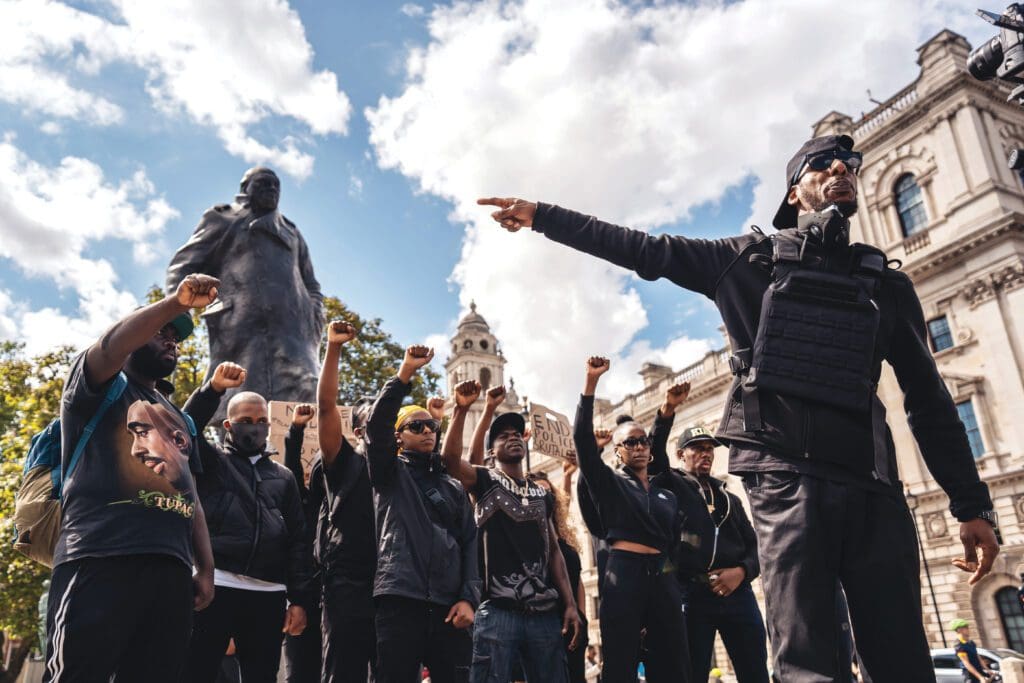
the statue of Sir Winston Churchill, while recording a video clip, London, 20 June 2020 PHOTO: Shutterstock
3. The Creative Prince Mastering the Moment
What is usually more difficult than creating something is preserving it. Politics is characterized by circumstances which are only provisionally fixed. With the passage of time, new opportunities and new threats emerge, to which the mainstream of the currently valid traditions fails to provide answers. For a prince wishing to control the present moment, therefore the relationship with the past is therefore determined by the discovery of the occasional applicability of lessons drawn from the prior experiences of others, as well as from one’s own earlier experiences. Politics in this sense is the search for what is possible, or, as Kari Palonen put it, ‘if politics is the art of the possible, its practice includes creation, control, and the containment of a diversity of contingencies’.25 In John G. A. Pocock’s words, ‘if politics be thought of as the art of dealing with the contingent event, it is the art of dealing with fortuna as the force which directs such events and thus symbolizes pure, uncontrolled, and unlegitimated contingency’.26 Contingency and bad luck are often compared to the flood, as in Machiavelli’s metaphor of a dike. Good fortune or bad fortune, similarly to a flood, cannot be prevented; risks, however, can be mitigated if one finds the political equivalent of a ‘dike’.
The literary genre of ‘mirrors for princes’ tries to provide methodical answers to the challenges of a given era. In such works, various political ‘laws’ and ‘golden rules’ can be identified. Tilo Schabert’s Boston Politics refrains from doling out advice; instead, it studies, describes, and verifies through empirical examples the durability of advice found in mirrors for princes. For political scientists of antiquity, the Middle Ages, and, to a lesser degree, of our own time, the issue of creativity is closely linked to seizing, retaining, and exercising power. Schabert showcases the smart lines of defence which helped the mayor of Boston to stay in power.
‘If you steadily apply methods, you will erect a chaotic but powerful rule of which you will be the sole master. You will delegate power and yet you will hold it all. You will incite countless power struggles. But you will pull the strings. Your associates and aides will be grateful to you for their bit of independence. And you will possess the advantage of having some others to blame, if anything goes wrong. […] The manipulation of governmental chaos is the source of your personal power.’27
At a certain point, the author offers a list of political maxims known since the Middle Ages and the Renaissance which the prince has to follow in order to increase his room for manoeuvre and to reduce his vulnerability:
‘Emulate the wisdom of the rulers in Ancient Rome: divide et impera—divide and dominate.’
‘Do not establish precise lines of authority. Keep responsibilities blurred.’
‘Give your associates and aides some latitude for running their affairs. Foment competition.’
‘Engage several agencies in projects on similar turf. Make them jockey for position.’
‘Distribute from time to time chips of influence among your aides and subordinates. They tantalize their yearning for power.’
‘Create two layers of government, a visible and an invisible one, by splitting governmental positions into nominal and real functions.’
‘Become an expert in substituting a web of personal relationships for the system of government.’28
Topoi of Impersonal Political Creativity
Political science in the second half of the twentieth century focused mainly on the neutralization of personal traits. In this process, the redefining of the prevailing liberalism after the Great War represented a turning point. Liberal economic theory was shaken: the Great Depression of 1929 was a red flag, signalling that the ‘invisible hand’ of the market was not an infallible life-organizing mechanism. The idea of classical liberal constitutionalism collapsed: the demise of the Weimar Republic in 1933 revealed that the viability of classical liberal democracy was not self-evident. A new technological era began after 1945, as the onset of the Cold War, the nuclear age, and space travel created unprecedented and extraordinary conditions. Politicians capable of bringing about change were looked upon with suspicion, while new justifications were being sought for liberal presumptions and new solutions for handling extraordinary situations. While Carl Schmitt found the person capable of dominating the moment in the charismatic leader, the image of the ‘prince’—compromised, in liberals’ eyes—was already discarded. A new, formal discourse came into being to justify political action, in which rationality attributed to individuals became decoupled from man’s creativity. Everything became logical, calculable, and explainable by mathematical methods. The study of political action was moved to the field of economics, where unprecedented decisions were now verified in the language of mathematics. Thus, the creative individual was made justifiable in accordance with the values of liberalism, but was stripped of any personal and charismatic traits, and the era of the depersonalization of creativity began. Depersonalized practices promise to be the most effective means of avoiding the risk of the creative individual, the most appropriate background knowledge to replace creative irrationality, or the best argument to displace individual creativity, the practice of which is part of everyday political life, but in reality they fail to replace or take over the role of individual creativity.
1. The Myth of Market Creativity
The myth of marketization sprang up from the soil of the new liberalism, which regards the network of relationships in the economy as the system which can process information the most effectively and creatively. By the 1970s, instead of the failures of the market, the failures of governments came to the fore, and neoliberal economists considered ‘the sphere of politics an arena of market mechanisms’. From a public interest perspective, politicians became unreliable but rational pursuers of their own self-interest, and neoliberal economists declared that ‘it of rules and institutions, from pursuing active discretionary policies’.29
Political creativity is aimed at the people, and needs careful consideration
The neoliberal ideal of marketization focuses at the how instead of the what, which means that instead of defining the public good and formulating the objectives associated with it, it is aimed at ‘means decoupled from goals and their efficiency, and not at political goals teleologically posited’. The market itself is ‘the form of politics’, and has become ‘governmental mentality’ and ‘governmental rationale’.30 Policy decisions are justified by profitability and not by democratic legitimization. The goal of market creativity is not the public good, but is utility manifested in profit-making, dominated by the automatism of enforcing economic self-interests. Political creativity, however, is aimed at the people, and needs careful consideration. György Matolcsy, the current president of the National Bank of Hungary, stated in 2007—a year before the eruption of the financial crisis—that the market can also make bad decisions, and ‘could only be self-regulating if behind the “invisible hand” it was directed by an invisible head’.31 The financial crisis of 2008 showed once more that the economy cannot be self-controlling. Of course, it was personal decisions which resulted in the recession; accountability, however, was veiled by the then-current practice of decision-making. Viktor Orbán noted as early as 2009 that it was decisions which had led to the crisis: ‘The financial crisis and the suffering of millions it caused is not the consequence of some impersonal market processes or some laws which are beyond our control, but that of the moral deficiency of some particular persons who stole, cheated, and lied, and wanted to get rich at the expense of others’. Nowadays governments tend to assume a greater role again, pursuing policies which rectify market creativity by political creativity, policies which are, from the perspective of market dogmatism, unorthodox: ‘The time of neoliberal experimenting is over, the omnipotence and self-regulation of the market is only a theory, and the role of the state is reality itself.’32
2. The Myth of Experts’ Creativity
Whereas in the 1970s governmental failures and politicians driven by self-interest were scrutinized closely, in 2008 the ‘self-regulating’ market was targeted again. After the financial crisis, the idea of technocracy, that is, decision-makers elected or nominated on the basis of expertise, became one of the main topics in political public discourse. In this framework, proposed solutions are justified by expertise; those who know the rules of crisis management can therefore deal with extraordinary situations as if they were normal ones. The expert appears as a decision-maker who resolves issues: just like diseases, crises are part of our lives, and expert economists are the doctors of the economy. It is part of experts’ image that they seem to be above party politics, have generally not held public office under any party’s flag before this appointment, and are considered politically independent experts in an area which is directly connected with the position they fill.33 Gordon Bajnai in Hungary in 2009, Mario Monti in Italy and Lucas Papademos in Greece in 2011 became heads of government with such an aura of independent expertise. There is tension, however, between democratic legitimacy and the legitimacy of experts. Traditional arguments foreground the direct power of experts and a quasi-independent interpretation of roles, while contemporary arguments emphasize the complementary nature of technocrats and democracy. The problem is that the delimitations of boundaries between democratic decisions and experts’ decisions is often regarded as a question to be decided by experts.34
One of the arguments against experts’ decision-making is related to the experts’ personalities. Regarding the expert’s limitations, Harold Laski noted that for a wise decision, issues need to be looked at from a distance, but this sense of proportion is often distorted because the expert ‘sacrifices the insight of common sense to the intensity of his experience’. The expert’s creativity is subject to routine in using a given tool instead of coordinating the appropriate tools. Such coordination is the responsibility of the statesman, who can view a task from the perspective of the public good in its entirety. ‘Expertise consists in such an analytic comprehension of a special realm of facts that the power to see that realm in the perspective of totality is lost.’ The expert is inclined ‘to make his subject the measure of life, instead of making life the measure of his subject. The result, only too often, is an inability to discriminate, a confusion of learning with wisdom […]. There is no illusion quite so fatal to good government as that of the man who makes his expert insight the measure of social need.’35
Experts, naturally, cannot be dispensed with in politics either, but from the perspective of decision-making, the expert’s role is no more than that of an invaluable public servant, and not that of the leader.36 Experts are capable of measuring the expected results of plans proposed, mapping risks, and highlighting possible consequences of a policy, but it is the duty of ‘public wisdom’ to take the final decision out of their hands.37 It is the responsibility of the head of government to point out, against either the expert or the administration, what public opinion would refuse to accept.38 And the expert remains an expert only as long as he refrains from aspiring to align his own field of expertise with the totality of human knowledge. Alignment is the political leader’s task, and this requires something else: ‘The wisdom that is needed for the direction of affairs is not an expert technic but a balanced equilibrium. It is the knowledge of how to use men, a faculty of judgement about the practicability of principles.’39 This does not demand an expert knowledge, but the ability to use such knowledge ‘at the right moment, and in the right direction’.40 It is this decision, supported by expert knowledge, that Armin Laschet, the former chairman of the CDU, referred to in an article in which he called people’s attention to the self-restraint necessary during the pandemic. In his opinion, politicians must avoid ‘falling into the euphoria of extraordinary circumstances and the power to be engaged in decisive action’.41 The German politician expected to find the way out on the basis of interdisciplinary, scientifically verified solutions, adding that ‘answering difficult ethical questions stemming from the crisis continues to be the responsibility of politics’. On the political significance of experts’ knowledge, Viktor Orbán commented privately in 2015 that it was not necessary to have deep expert knowledge in each and every policy area, ‘since for that we can also count on the valuable knowledge of ministers and senior officials’. What is needed, however, is ‘the ability to move across borders’, ‘the skill of projecting different dimensions onto each other’, since, for example, ‘what the interrelations of social issues with the tax regime really are is something that only the prime minister can assess’.42
3. The Myth of Deliberative Creativity
Finally, the myth of deliberation, whereby participants may reach agreement in principle, seems to promise the best solution and the most acceptable idea. One of the most obvious practical limitations is, however, the time factor. Carl Schmitt made the point that, faced with the choice between ‘Christ or Barabbas’, liberals’ answer would always be, ‘Let’s convene a committee, or postpone the meeting’.43 Arriving at a consensus—if it is possible at all—always takes time, and one of the crucial constraints in decision-making is time. Sometimes it is worth committing to a not completely satisfying idea instead of postponing the decision in the hope of an optimal consensus; a less-than-optimal solution is often better than no solution at all. This, however, should not be confused with the decision to refrain from action, since not shaping the circumstances also creates new circumstances: a non-decision is also a decision.
The idea of consensus creates the impression of religious conversion
This tradition was labelled ‘ultra-rationalist’ by Kari Palonen,44 which would neutralize the irrationality of decision-making with some unsurpassable solution muting the public. The idea of consensus creates the impression of religious conversion: in the course of an ideal debate, even the last ‘pagan’ participant is converted and drawn into the circle of devotees.45 This is based on the presumption that everyone recognizes the strength of the best a priori argument that has existed before its recognition, by which an all-encompassing, unforced consensus can be established, meaning that no decision needs to be made. The notion of ‘consultation’ implies that the responsibility of creative politics can be eliminated and that the conflicts entailed by creative politics can be suppressed. In the course of an ideal consultation, lasting until consensus is reached, everyone takes part in the collective thinking, no opinion is excluded in advance, and the burden of personal responsibility for the final result is dissolved in the consensus. In reality, a methodical brainstorming of this sort bypasses creativity instead of encouraging it. If there is no consensus, the collective brainstorming can always be postponed, and consequently, only self-evident solutions can emerge from such consultations. During an ‘optimal’ debate, no decision is required, and voting is also unnecessary, as only a rational procedure—consultation—is conducted. In reality, however, consultations are also shaped by individual characters; persuading others requires not only factual arguments, but also real, formative, and creative action, including manipulation, ousting, altering the balance of power, and an attempt to defeat others. In addition to personal presence, a creative personal character who is not only able to steer the consultation in the right direction but can also resist and cope with manipulation is also necessary for arriving at a new equilibrium.46 The sessions of the European Council offer useful examples of how creativity and enforcing political interests can create compromises instead of working towards consensus, even at times when a unanimous decision is required.
Translated by Balázs Sümegi
NOTES
1 Vlad P. Glăveanu and James C. Kaufman, ‘Creativity. A Historical Perspective’, in The Cambridge Handbook of Creativity (2019), 9–25.
2 Barbara Silberdick Feinberg, ‘Creativity and the Political Community: The Role of the Law-giver in the Thought of Plato, Machiavelli and Rousseau’, The Western Political Quarterly (September 1970), 471–484.
3 Plutarkhosz, Párhuzamos életrajzok I (Plutarch,Parallel Lives) (Budapest: Magyar Helikon), 85–166.
4 Arisztotelész, Nikomakhoszi Ethika (Aristotle, Nicomachean Ethics) translated by Miklós Szabó (Budapest: Magyar Helikon), 1141b.
5 Arisztotelész, Politika, (Aristotle, Politics) translated by Miklós Szabó (Budapest: Gondolat) 1253a. (Our translation.)
6 Niccoló Machiavelli, ‘Beszélgetések Titus Livius első tíz könyvéről’ (Discourses on Livy), Machiavelli összes művei (Essential Writings of Machiavelli), translated by László Lontay (Budapest: Európa).
7 See Tamás Lánczi, ‘Bölcsesség és tudás között: A kreativitás politikája a posztkommunista
világban’ (Between Wisdom and Knowledge: Politics of Creativity in the Post-communist World), Kommentár, 2 (2009), 21–40; Attila Károly Molnár, ‘A politikus nagyszerű lelke’ (The Wonderful Soul
of the Politician), Kommentár, 6 (2015), 7–19, www. kommentar.info.hu/uploads/2015/6/1585506373.pdf.
8 Jean-Jacques Rousseau, The Social Contract, translated by Jonathan Bennett, www. earlymoderntexts.com/assets/pdfs/rousseau1762.pdf, 20.
9 Rousseau, The Social Contract, 20.
10 Rousseau, The Social Contract, 21.
11 Attila Károly Molnár, ‘A politikus nagyszerű lelke’ (‘The Great Soul of the Politician’), Kommentár,
6 (2015), 7–19, www.kommentar.info.hu/ uploads/2015/6/1585506373.pdf.
12 Rousseau, The Social Contract, 19.
13 Niccoló Machiavelli, The Prince, translated and introduced by Tim Parks (Penguin Classics, 2014), 22.
14 Machiavelli, The Prince, 22.
15 Machiavelli, The Prince, 23.
16 Machiavelli, The Prince, 22.
17 Tacitus, ‘Korunk története’ (Tacitus, Annals), translated by István Borzsák, in Tacitus összes művei (The Complete Works of Tacitus) (Budapest, Európa Könyvkiadó), vol. I, 371. (Our translation.)
18 Jan Assmann, Uralom és üdvösség. Politikai teológia az ókori Egyiptomban, Izraelben és Európában (Power and Salvation. Political Theology in Ancient Egypt, Israel, and Europe) (Budapest: Atlantisz Könyvkiadó, 2008). (Our translation.)
19 At Manetho, for example, Moses—as an Egyptian priest—organizes a number of oppressed lepers into
a political community, giving them laws, primarily concerning religion.
20 Joseph A. Schumpeter, Capitalism, Socialism and Democracy (London and New York: Routledge, 2003 [1943]), 81–86.
21 Assmann, Uralom és Üdvösség, 311–312.
22 Assmann, Uralom és Üdvösség, 314.
23 Assmann, Uralom és Üdvösség, 316.
24 Assmann, Uralom és Üdvösség, 322.
25 Kari Palonen, ‘Das Webersche Moment’, in Zur Kontingenz des Politischen (Wiesbaden: Springer Fachmedien, 1998), 74.
26 John Greville Agard Pocock, The Machiavellian Moment. Florentine Political Thought and the Atlantic Republican Tradition (third edition, Princeton–Oxford: Princeton University Press, 2016), 156
27 Tilo Schabert, Boston Politics: The Creativity of Power (Berlin–New York: Walter de Gruyter, 1989), 42.
28 Schabert, Boston Politics, 41.
29 For an overview of establishing neoliberalism
as a political programme, see Dániel Oláh, ‘A neoliberalizmus mint politikai program létrejötte és megvalósításának elemei’ (The Birth and the Elements of Implementation of Neoliberalism as a Political Programme), Pénzügyi Szemle, 1 (2018), 96–113, 99.
30 János Frivaldszky, ‘Jó kormányzás a neokonzervatív/neoliberális korszak után: A közjóra irányuló szubszidiárius-relacionális kormányzás felé’ (Good Governance after the Neoconservative and Neoliberal Era: Towards Subsidiary and Relational Governance), Iustum Aequum Salutare, 9/2 (2013), 21–82, 28.
31 György Matolcsy, ‘A neoliberális gazdaságpolitika téveszméi’ (Delusions of Neoliberal Economic Policy), Polgári Szemle, 3/7–8 (2007), https://polgariszemle.hu/ archivum/35-2007-julius-augusztus-3-evfolyam-7-8-szam/200-a-neoliberalis-gazdasagpolitika-teveszmei.
32 Viktor Orbán at the Budapest event of the European People’s Party on 17 September 2010, https://fidesz-eu. hu/orban_a_neoliberalizmus_kora_lejart/.
33 Duncan McDonnel and Marco Valbruzzi, ‘Defining and Classifying Technocrat-led and Technocratic Governments’, European Journal of Political Research, 53/4 (November 2014), 654–671, 657–658, https://ejpr.onlinelibrary.wiley.com/doi/abs/10.1111/1475-6765.12054.
34 Christopher Bickerton and Carlo Invernizzi Accetti, ‘Technocracy and Political Theory’, in Eri Bertsou and Daniele Caramani, eds, The Technocratic Challenge to Democracy (London: Routledge, 2020), 27–43, 29; Daniele Caramani, ‘The Technocratic Challenge to Democracy’, in Eri Bertsou and Daniele Caramani, eds, The Technocratic Challenge to Democracy (London: Routledge, 2020), 1–26.
35 Harold J. Laski, Limitations of the Expert (London: The Fabian Society, 1931), 7–9, https://digital.library. lse.ac.uk/objects/lse:wal303heb/read/single#page/1/ mode/2up.
36 Laski, Limitations of the Expert, 10.
37 Laski, Limitations of the Expert, 10.
38 Laski, Limitations of the Expert, 9–10.
39 Laski, Limitations of the Expert, 9.
40 Laski, Limitations of the Expert, 9.
41 Schmitt used the expression Ausnahmezustand: ‘Wir als Politiker sind deshalb gut beraten, nicht dem Rausch des Ausnahmezustands und der Tatkraft zu verfallen, sondern auch in dieser Stunde der Exekutive Maß und Mitte zu wahren’, www.welt.de/debatte/kommentare/ article206868669/Exit-Stratgegie-Jetzt-muessen-wir- fuer-die-Zeit-nach-Corona-planen.html.
42 444.hu (2015), https://444.hu/2015/10/12/orban- korulirta-az-utodjat.
43 Carl Schmitt, Politikai teológia (Political Theology), translated by Péter Paczolay, (Budapest: ELTE ÁJK, 1992), 32.
44 Kari Palonen, ‘Parliamentary and Electoral Decisions as Political Acts’, in Daniel Bessner and Nicolas Guilot, eds, Imaginal Decisionism. Sovereignty, Social Science, and Democracy in the 20th Century (Berghahn Books, 2019).
45 Palonen, ‘Parliamentary and Electoral Decisions as Political Acts’.
46 For an overview of realist critique of deliberative democracy, see Attila Károly Molnár, Tanácskozó demokrácia és a megváltó csevegés (Deliberative Democracy and the Redeeming Chat) (NKE Tamás Molnár Centre of Research, 2014), 80–114.

